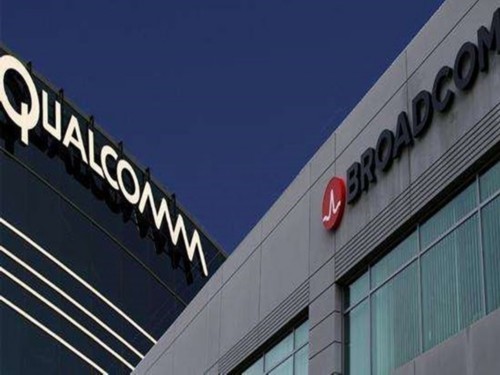CFIUS in the United States is worried about losing its jurisdiction, saying that Bo does not move its headquarters to the United States at will.

According to foreign media reports, three people familiar with the matter said today that the US Foreign Investment Committee (hereinafter referred to as "CFIUS") has informed Broadcom Corp that it is not allowed to act arbitrarily to move its headquarters to the United States. No matter what the measures are, CFIUS is notified by 5 working days in advance.
At present, CFIUS is assessing whether Bo Tong's acquisition of high - pass transactions will threaten national security in the United States. CFIUS is a federal government committee in the United States, composed of 11 heads of government agencies and 5 observers, and the US finance minister is the chairman of the Committee. CFIUS mainly reviews foreign investment transactions that may affect the national security of the United States. CFIUS has realized that its jurisdiction would be challenged if it moved its headquarters to the United States, people familiar with the matter said.
At present, some industry experts are also considering the problem. If Bo Tong moved its headquarters to the United States, would CFIUS have the right to review the deal? In a letter to customers, the law firm Kirkland & Ellis LLP said, "if we pass the headquarters to the United States, what kind of impact will it have on CFIUS's jurisdiction?"
Lawyers for the Klein international law firm said the CFIUS was very delicate, rather than constant, when judging whether a company was a "foreign company". For example, the ownership of the company needs to be assessed, including formal and informal ownership mechanisms.
Broadcom has said, plans to complete the relocation of the headquarters of the work before May 6th this year. In March 9th, Bo Tong had asked the Singapore court to approve its special shareholders meeting to approve the plan to move the headquarters to the United States. The shareholders' meeting is scheduled to be held in March 23rd, and the results of the vote need to be approved by the court of Singapore.
For the CFIUS request, we have to notify the relocation headquarters in advance. A spokesman in an e-mail statement said: "we have received the relevant requirements of CFIUS, and will actively cooperate.
At the same time, CFIUS also asked Qualcomm to take any action before the April 5th review period to promote a purchase agreement with Bo Tong.
For the deal, the commitment is very firm, and it seems to be coming. In order to dispel the concerns of the US government, Broadcom sent a compromise signal to the US government on Wednesday, saying it plans to invest 1 billion 500 million US dollars to train American engineers, so that the US can lead the global 5G market.
Yesterday, Broadcom also sent a letter to the US Congress that if the US government approved its 117 billion US dollar acquisition of Qualcomm transaction, the future new company would not sell any important national security assets to any foreign company.
In addition, Qualcomm also said last night that Paul Jacobs, chairman of the company, was dismissal in order to ensure a fair assessment of the deal. The Qualcomm Corp was created by Jacob's father in 1985 with others.
There was also news this morning that Intel, another big American semiconductor giant, had seen the potential threat of Bo Tong's acquisition of high - pass transactions. Intel is paying close attention to the deal, and if it finds it may win the deal, Intel is going to buy it.







